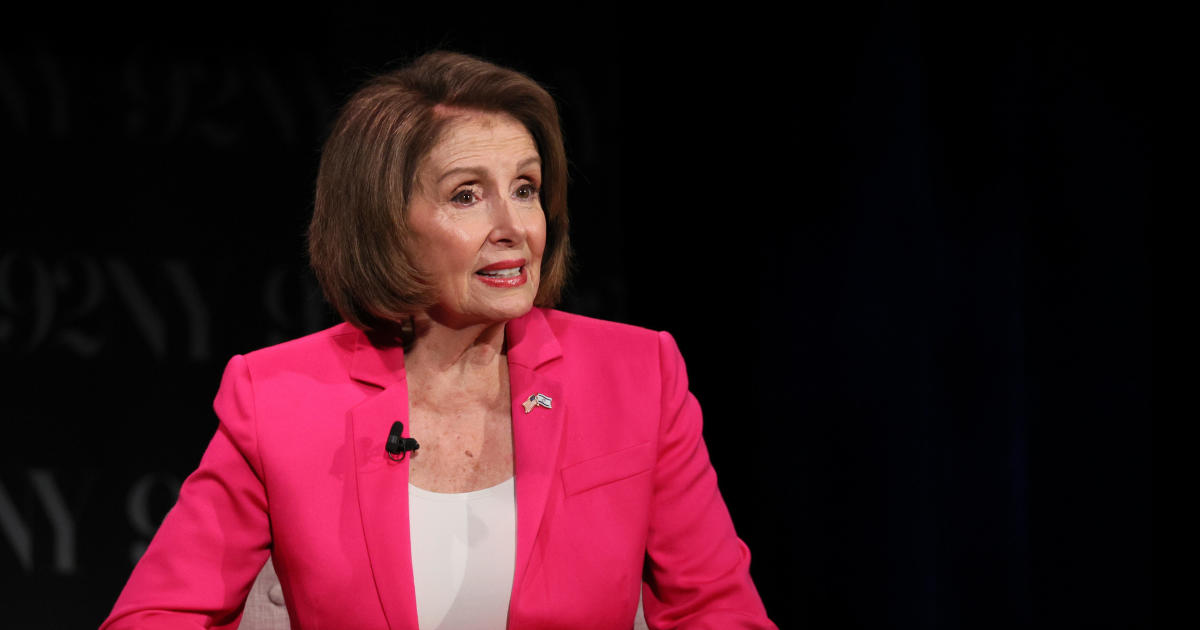Fact Check: Why Trump Can't Shut Down The Internet
(CBS / AP) -- Donald Trump is repeating calls for the U.S. and its allies to cut off internet access to the Islamic State group and other extremist organizations.
Problem is, there isn't a way to do it.
Trump first made the demand during a debate in December. He said the government should work with "brilliant people" in Silicon Valley to keep violent extremists offline, even if that means shutting down parts of the internet.
• ALSO READ: Naked Trump Statue Appears In San Francisco's Castro
But that's not possible from a technical standpoint. The U.S. can't turn off the internet in other parts of the world. And even if could, such a move would likely hurt more than potential attackers, and it would hinder the government's ability to keep tabs on them.
Here's a look at Trump's idea and why it won't work:
---
WHAT TRUMP SAID (THIS TIME)
In Monday's speech, in which Trump also blamed Hillary Clinton and President Barack Obama for the rise of the Islamic State and instability in the Middle East, Trump pledged to pursue military operations to "crush and destroy ISIS." He added that internet attacks and financial warfare will be essential in dismantling Islamic terrorism.
"We cannot allow the internet to be used as a recruiting tool, and for other purposes, by our enemy," Trump said. "We must shut down their access to this form of communication, and we must do so immediately."
The actions wouldn't be limited to the Islamic State. Trump also singled out Al Qaeda, Hamas and Hezbollah as necessary targets.
---
FIRST OBSTACLE: THE INTERNET ITSELF
For one thing, the U.S. doesn't control the internet. No one does.
Because the internet is a global web of networks that are all owned by different governments, companies or individuals, no single entity has the ability to turn it off in parts of the world that it doesn't control. The only recourse is to destroy the electric grid and other infrastructure in that region - but that's extreme, and it still might not work with the availability of power generators and such.
Even within the U.S., ferreting out extremist groups and kicking them off the internet isn't realistic, given how rapidly the internet grows and changes.
And people have a long history of finding their way around internet restrictions, whether it's democracy activists in China or Iran, or tweens looking to circumvent their school's firewall.
---
THE PROBLEM WITH SOCIAL MEDIA
Groups such as the Islamic State have mastered social media for recruiting and spreading their message.
Both Twitter and Facebook say they don't tolerate posts that promote violence and will remove such posts when reported by users. Accounts linked to such activity are shut down.
Twitter said Thursday that it's suspended 235,000 accounts for the promotion of terrorism over the past six months.
But there's nothing stopping banned users from opening new accounts under different names, turning such efforts into the equivalent of "Whac-A-Mole."
So far, internet companies have resisted pre-emptively blocking posts, partly because that would require judgment calls about what constitutes terrorism - a definition that differs around the world.
---
THAT PESKY FIRST AMENDMENT
Civil libertarians say any attempt to filter out the online activities of extremist groups would inevitably infringe on the free-speech rights of Americans, because it's impossible to block out that speech without blocking legitimate speech, too.
While First Amendment protections don't extend to people in other countries, the law enforcement and intelligence communities have mixed feelings about shutting down terrorist chatter online. They say such chatter can help them monitor terrorist activities and prevent a future attack.
---
THE RISE OF CYBERWARFARE
Trump said Monday that cyberwarfare is one of his key strategies for destroying extremists, but it's not an entirely novel concept.
In theory, hackers for the U.S. or its allies could mount an internet attack to shut down a terrorist group's recruiting or communications operations, or they could just hack in to surveil the group.
While they may not admit it, most countries that have spies now have state-sponsored hackers, too. Many of them see cyberwarfare as a cheaper and safer alternative to traditional military action, sanctioned or otherwise.
China is widely thought to be behind last year's hack of the U.S. Office of Personnel Management. And some experts believe Russia is behind the recent breach targeting the Democratic Congressional Campaign Committee and other Democratic Party entities.
Many experts say the U.S. and Israel fired the first shot of the cyberwarfare age. They're believed to be behind Stuxnet, a computer virus that disrupted an Iranian uranium-enrichment facility beginning in 2010 and set back Iran's nuclear ambitions. Neither the U.S. nor Israel has acknowledged any involvement.
© Copyright 2016 The Associated Press. All Rights Reserved. This material may not be published, broadcast, rewritten or redistributed.



